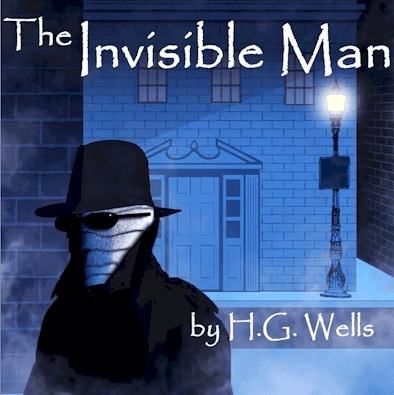Lies and Deceit Quotes - The Invisible Man by H.G. Wells | The Invisible Man by H.G. Wells - English - Class 12 PDF Download
That invisibility to which I refer occurs because of a peculiar disposition of the eyes of those with whom I come in contact. A matter of the construction of their inner eyes, those eyes with which they look through their physical eyes upon reality. (Prologue.2)
The narrator sets up the importance of a physical eye in this passage, which later comes in handy when analyzing Reverend Barbee and Brother Jack.
For instance, I have been carrying on a fight with Monopolated Light and Power for some time now. I use their service and pay them nothing at all, and they don't know it. Oh, they suspect that power is being drained off, but they don't know where. All they know is that according to the master meter back there in their power station a hell of a lot of free current is disappearing somewhere into the jungle of Harlem. The joke, of course, is that I don't live in Harlem but in a border area. (Prologue.7)
Ripping off the power company is the narrator's form of social protest while maintaining his invisibility.
On his deathbed he called my father to him and said, "Son, after I'm gone I want you to keep up the good fight. I never told you, but our life is a war and I have been a traitor all my born days, a spy in the enemy's country ever since I give up my gun back in the Reconstruction. Live with your head in the lion's mouth. I want you to overcome 'em with yeses, undermine 'em with grins, agree 'em to death and destruction, let 'em swoller you till they vomit or bust wide open…Learn it to the younguns," he whispered fiercely; then he died. (1.2)
The narrator's grandfather advises compliance as the route to eventually overcoming white-dominated society. His words are a refrain throughout the book; each time it reappears, it is given new meaning.
On my graduation day I delivered an oration in which I showed that humility was the secret, indeed, the very essence of progress. (Not that I believed this – how could I, remember my grandfather? – I only believed that it worked.) It was a great success…It was a triumph for our whole community. (1.3)
At this point in time, the narrator believes that the road to progress is through deception – saying one thing to the white community while secretly believing another.
Damn what he wants…We take these white folks where we want them to go, we show them what we want them to see. Don't you know that? I thought you had some sense. (4.33)
Dr. Bledsoe reprimands the narrator for not manipulating Mr. Norton. It turns out that black people have been deceiving the rich white guys in order to make them feel as though "racial uplift' is occurring.
You right, but everything that looks good ain't necessarily good. (13.23)
We like interpreting this platitude from the yam vendor as presaging what happens with the Brotherhood.
Brother, This is advice from a friend who has been watching you closely. Do not go too fast. Keep working for the people but remember that you are one of us and do not forget if you get too big they will cut you down. You are from the South and you know that this is a white man's world. So take a friendly advice and go easy so that you can keep on helping the colored people. They do not want you to go too fast and will cut you down if you do. Be smart…(18.2 – 18.3)
This anonymous message generates new significance when we learn at the very end of the novel that it's from Brother Jack, who is white. This is just another example of the ways that race is used as a manipulative tool in this novel.
FAQs on Lies and Deceit Quotes - The Invisible Man by H.G. Wells - The Invisible Man by H.G. Wells - English - Class 12
| 1. What are some notable lies and deceit quotes from H.G. Wells' The Invisible Man? |  |
| 2. How does the theme of lies and deceit contribute to the overall meaning of The Invisible Man? |  |
| 3. How does the invisible man manipulate others through lies and deceit in the novel? |  |
| 4. What are some examples of characters in The Invisible Man who fall victim to lies and deceit? |  |
| 5. How does H.G. Wells explore the psychological impact of lies and deceit in The Invisible Man? |  |


























